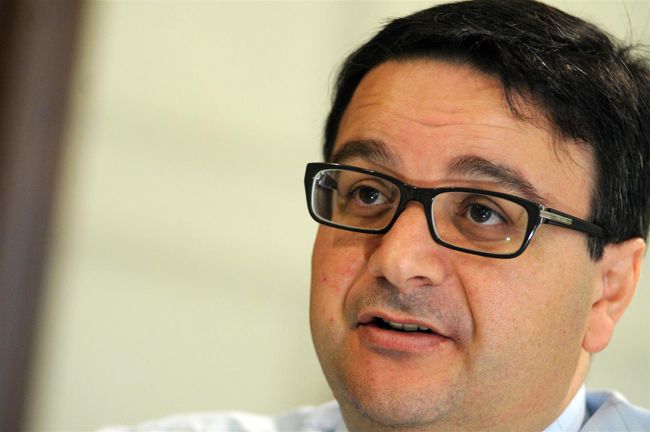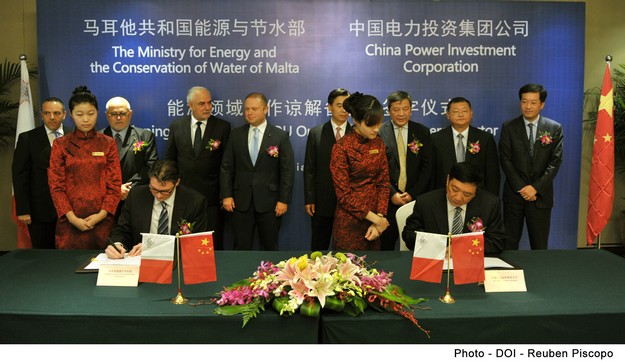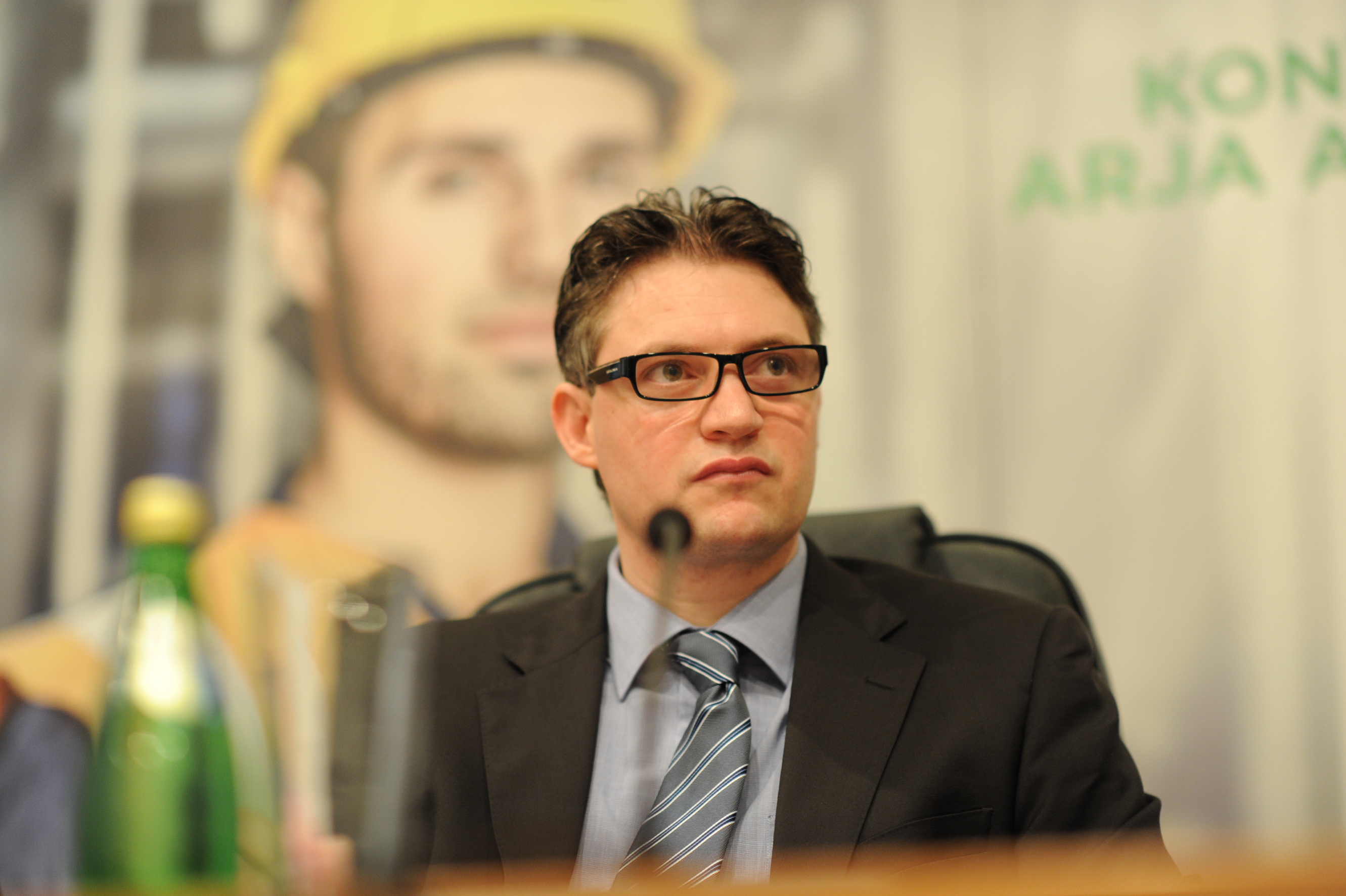Former minister Tonio Fenech insisted that the heavy debts incurred by Enemalta over the years were the most palatable option, as it would have been impossible to avoid them without stymying the development of the Maltese economy.
Mr Fenech was speaking as parliamentary debate on a bill transforming the corporation into a public limited company (plc) resumed this evening.
He started by stating that the bill could simplistically be seen as one transferring the corporation’s assets to a plc whilst transferring workers to a separate entity, but stressed that such developments did not happen in a vacuum.

Tonio Fenech
The bill, he said, was a consequence of the government’s designs on Enemalta, as the present structure of the corporation prevented the plans from going forward. He also noted that what was even worse was that the government saw the need to separate the assets from the corporation’s workers, to strip the new company of all obligations towards its employees.
The former minister then stressed that he was aware that this government did not inherit a corporation with a healthy financial situation, though he also noted that this was the case long before he took office.
But he argued that this reflected the challenges that Malta had faced over the preceding 25 years, stating that when the PN ended up in government in 1987, the country’s economy was lagging and there was little private enterprise to speak of.
The government of the day, he said, recognised that keeping energy prices low was a key factor to encourage investment at the time, but also faced the need to invest in a new power plant since the country was relying on an aging Marsa plant.
Mr Fenech argued that if the government decided to double electricity rates to cover the costs of the investment in the original Delimara plant, Malta’s economy would not have developed as it did.
A similar argument was made later in the day by MP Censu Galea, who said that if Enemalta did not invest heavily over the years, Malta would have fallen “100 years behind.”
In his intervention, Mr Fenech also questioned the urgency behind the bill, and insisted that this was the result of the government’s desperation to secure funds from Chinese investors.
Mr Fenech questioned the way the bill would transfer the corporation’s workers into a separate entity – Engineering Services Limited – and said that it was clear that this condition was imposed by the Chinese in light of salaries which were higher than those they were accustomed to. He also noted that the entity’s name did not even include any reference to electricity or energy generation.
He also argued that the partial privatisation of Enemalta and the construction of a new plant by ElectroGas Malta – which, he said, was unnecessary at this point in time – was placing Malta under too many contractual obligations. While the original aim may have been to lower electricity bills, he said, Malta will be hit hard a few years down the line, he maintained.
Beppe Fenech Adami: government ‘selling off most important asset’
PN deputy leader Beppe Fenech Adami noted that while one would not expect the government to carry out all of its electoral promises so soon, one would also not expect it to break key promises either.
He noted that the government’s promises of meritocracy and transparency had fallen by the wayside, and also pointed out that the electoral manifesto ruled out the privatisation of Enemalta – a step which, he said, was never considered by the previous government, despite Labour’s scaremongering at the time.
Dr Fenech Adami said that it was ironic to have a “socialist” government make the country dependent on foreign entities to generate energy on the 50th anniversary of independence.
“The government has already sold its soul, and it is now selling the most important asset: the generation of energy,” he remarked.
The PN deputy leader warned that workers suffered when Chinese entities took over government and private entities elsewhere in Europe. He noted that in Greece, Chinese entities took over a number of harbours “because they found a weak government, as they are finding in Malta,” and that they ended up recruiting Chinese workers for lower pay and inferior working conditions.
Dr Fenech Adami noted that while PN governments sought to attract private investors from overseas, the present government was choosing to court foreign governments instead, and offering strategic assets to them.
He also dismissed the partial privatisation of Enemalta as the equivalent of settling a car loan by selling off a car.
The PN deputy leader moved on to the ElectroGas consortium, pointing out that while he had no issues with the Maltese partners, he had reservations about the two foreign entities involved: Gasol plc and the State Oil Company of Azerbaijan Republic (SOCAR).
A shouting match erupted as Energy Minister Konrad Mizzi raised a point of order to insist that Dr Fenech Adami had to present documents to back his claim that Gasol’s share value has collapsed in the past year, prompting PN MPs to challenge the minister to publish the contract signed with ElectroGas instead.
Speaker Anglu Farrugia intervened in a bid to calm things down, at one point telling MP George Pullicino that “pulcinell” (clown) was not an appropriate word for parliament. On his part, Mr Pullicino insisted that he stood by his words, before Dr Fenech Adami was asked to conclude his address.
The PN deputy leader noted that Azerbaijan was a dictatorship, and that there were serious concerns about the way its president Ilham Aliyev and his family were using SOCAR to enrich themselves. He also pointed out that Mr Aliyev had the dubious honour of being named corrupt person of the year by Transparency International.

MPs Mario Galea and Charlò Bonnici
Opposition MPs lash out at GWU’s silence on Enemalta
Earlier in the evening, MPs Mario Galea and Charlò Bonnici were strongly critical of the General Workers’ Union’s failure to take a stand on the future of Enemalta. GWU secretary-general Tony Zarb had been contacted by The Malta Independent earlier this week, but refused to declare his position on the partial privatisation of the corporation.
Mr Galea, who had started his address in the morning session, continued where he left off by referring to the meeting for Enemalta workers involved in electricity generation which took place in September 2013, in which they were given a number of options.

The MP argued that all options left the workers worse off: they could either work for Shanghai Electric or Electrogas Malta – under a definite contract – or remain with Enemalta but on day duties, thus missing out on shift allowances and other benefits.
He said that it was clear that the Labour Party had deceived Enemalta workers when it guaranteed their jobs before last year’s general election.
But he then turned his guns on the GWU, which, he said, was a lion when the PN was in government, only to transform into a “soft toy” when Labour was returned to power.
Mr Bonnici made a similar argument, questioning where the union’s “crocodile tears” – which, he said, it shed when a PN government restructured the shipyards – had gone. He said that GWU secretary-general Tony Zarb’s battle cry “issa daqshekk” (enough is enough) had been transformed into “u issa b’daqshekk” (so what?).
Both MPs also insisted that Enemalta workers should not be made to adapt to the management culture of investors’ home countries, arguing that Shanghai Electric should adapt its management practices to the standards Maltese workers were used to.
Mr Galea questioned whether the contract with Shanghai Electric safeguarded the rights presently enjoyed by Enemalta workers.
The MP criticised the government’s failure to publish the agreement with Shanghai Electric – which is acquiring one third of the corporation – and ElectroGas Malta, which is set to build a new gas-fired power plant in Delimara.

He questioned why the government was hiding the Electrogas agreement, noting that there was no reason to do so if it was truly the very good agreement Prime Minister Joseph Muscat claimed it was.
Mr Galea also questioned what would happen if Electrogas decided to hike its energy prices after the 5-year period in which prices are fixed expires, and also lamented that Malta was losing its sovereignty on energy generation.
The two MPs also said that Shanghai Electric’s acquisition of the BWSC plant vindicated the previous government’s investment in the plant, pointing out that the company would not have shelled out on a plant it deemed worthless.
Later in the day, MP Toni Bezzina similarly focused on workers’ concerns, stating that “1,530 families” will be directly affected by the bill being debated in parliament.
In his own intervention, MP Antoine Borg questioned the government’s decision to keep agreements related to energy hidden, noting that when the contract through which Sai Mizzi – Dr Mizzi’s wife – was recruited as a special envoy to China was published, it became clear why the government was concealing it in the first place.
He said that he hoped that the country would not end up discovering that there was a similar reason behind the government’s decision not to publish the agreements on energy.